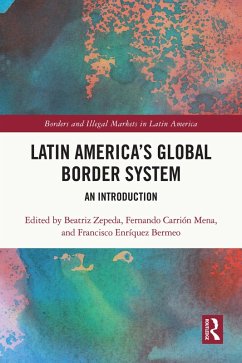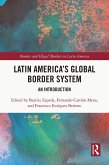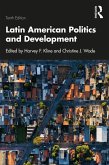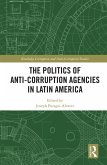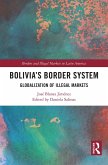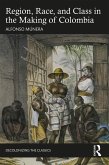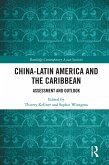Latin America's Global Border System is the opening volume in the first collection of academic works devoted exclusively to borders and illegal markets in Latin America.
Dieser Download kann aus rechtlichen Gründen nur mit Rechnungsadresse in A, B, BG, CY, CZ, D, DK, EW, E, FIN, F, GR, HR, H, IRL, I, LT, L, LR, M, NL, PL, P, R, S, SLO, SK ausgeliefert werden.
"This volume is an illustration of the collaborative, multidisciplinary work that today's great problems demand. It is in fact the capstone of an important work that began with a state-of-the-art dialog on Latin American borders and their ever-changing character, emphasizing three of the most central continental issues: Violence and crime, human rights, and urban development. It stands to lay a bridge for communicating Latin American border scholarship to researchers around the world."
Tony Payan, Universidad Autónoma de Ciudad Juárez
"Borders have undergone a profound metamorphosis. For most of the 20th century they were imaginary lines that were easy to cross. In the 21st century they are still open to illicit flows but have filled with obstacles and walls for people. The need to understand this transformation frames the splendid book edited by Zepeda, Carrión and Enríquez. This is an indispensable reading."
Sergio Aguayo, El Colegio de México
"The book offers a broad overview of Latin American borders, analyzing the illegal practices present in these regions. The studies cover the origin of these practices, the emblematic territorial disputes and point to the limited presence of state institutions, which favors environments of violence, as well as contraband, and human smuggling and trafficking among other critical processes. Latin American borders are a strategic priority for the modernization of the countries of the region and their development is a necessary alternative to illicit global challenges. This book offers an essential analysis to understand criminal dynamics in the global scenario and Latin America's role in them."
Tonatiuh Guillén, Universidad Nacional Autónoma de México
"Latin America's Global Border System provides an eye-opening account of the evolving borders in Latin America. It prepares the reader with important knowledge on how borders can be understood in the globalized world and proves an important addition to the field of border studies."
Carlos Daniel Gutierrez Mannix, Department of Political Science, University of Texas Rio Grande Valley
Tony Payan, Universidad Autónoma de Ciudad Juárez
"Borders have undergone a profound metamorphosis. For most of the 20th century they were imaginary lines that were easy to cross. In the 21st century they are still open to illicit flows but have filled with obstacles and walls for people. The need to understand this transformation frames the splendid book edited by Zepeda, Carrión and Enríquez. This is an indispensable reading."
Sergio Aguayo, El Colegio de México
"The book offers a broad overview of Latin American borders, analyzing the illegal practices present in these regions. The studies cover the origin of these practices, the emblematic territorial disputes and point to the limited presence of state institutions, which favors environments of violence, as well as contraband, and human smuggling and trafficking among other critical processes. Latin American borders are a strategic priority for the modernization of the countries of the region and their development is a necessary alternative to illicit global challenges. This book offers an essential analysis to understand criminal dynamics in the global scenario and Latin America's role in them."
Tonatiuh Guillén, Universidad Nacional Autónoma de México
"Latin America's Global Border System provides an eye-opening account of the evolving borders in Latin America. It prepares the reader with important knowledge on how borders can be understood in the globalized world and proves an important addition to the field of border studies."
Carlos Daniel Gutierrez Mannix, Department of Political Science, University of Texas Rio Grande Valley

